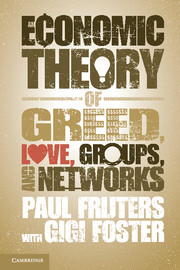Preface
Published online by Cambridge University Press: 05 May 2013
Summary
During my undergraduate days, while studying the materialist science of economics together with its more flowery cousins, philosophy and political science, I kept the following translation of a quotation from Dostoevsky's Brothers Karamazov pinned above my desk:
Give up your gods and come worship ours, or else death to you and your gods!
At the time, I saw this as a comment on the negative power of organized religion. Displaying the quotation was for me both an affirmation of the comparatively pacific nature of atheism and an expression of horror that beliefs alone could lead to material destruction. My horror, as with most people's, was both self-righteous and the product of ignorance.
As a budding economist and a firm utilitarian, however offended I was by the apparent irrationality of faith, I still perceived something good in it. I could not ignore its pacifying influence on the down- trodden, an observation offered only with heavy negative moralistic overtones in the standard canon. Yet many vexing questions continued to reverberate in my mind, to which I found no satisfactory answers in anything I read. Why did smart people allow themselves to believe in the demonstrably false? Why could they not be shaken by rational arguments? Why did they engage in seemingly ridiculous activities, such as prayer, and why did they brainwash their own children and others into performing these activities as well? Why did this brainwashing regularly work? Why might it feel good to believe in falsehoods? How personally committed was I to rejecting this potential stream of good feeling on the basis of the intellectual barrenness of its source, and was my rejection itself not a blatant violation of my own professed utilitarianism?
- Type
- Chapter
- Information
- An Economic Theory of Greed, Love, Groups, and Networks , pp. xi - xivPublisher: Cambridge University PressPrint publication year: 2013



